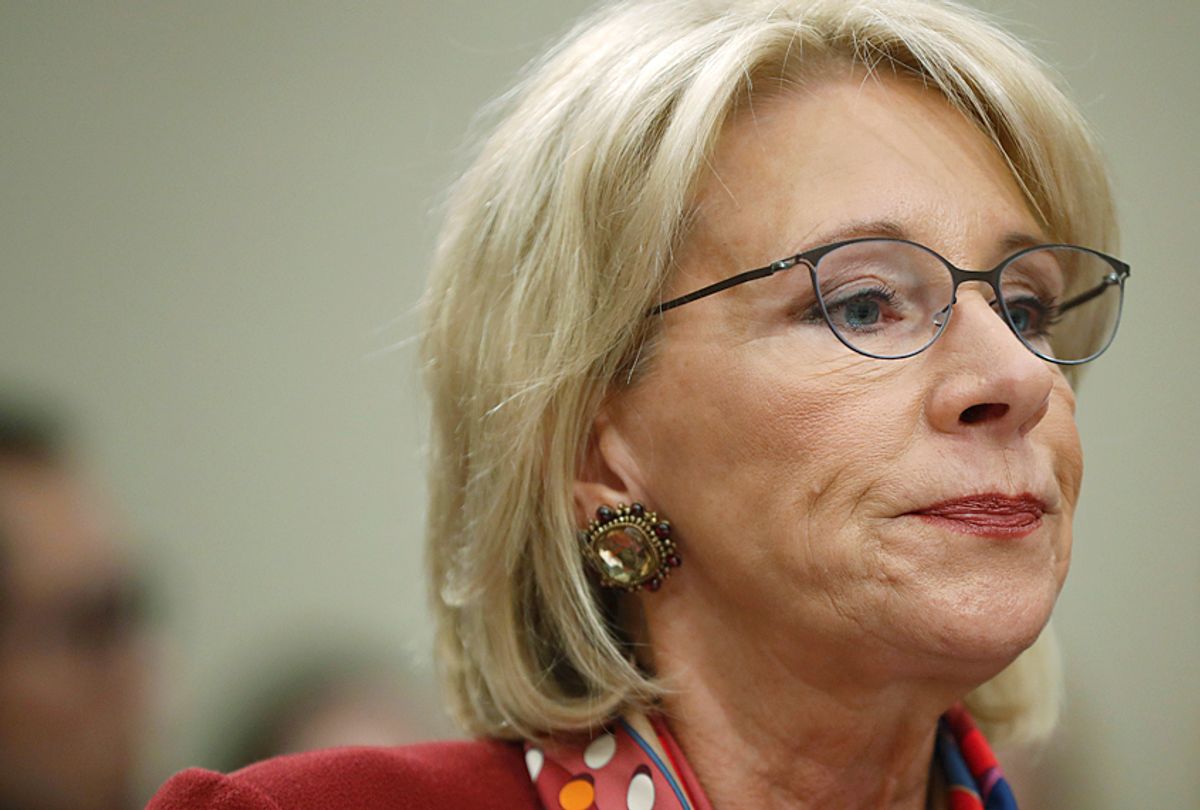In a featured editorial in The New York Times, a second-year law student at the University of North Carolina scorched Education Secretary Betsy DeVos for backing rules that would make it harder for schools to protect students from campus sexual predators while also keeping accusations out of their files.
According to Alyssa Leader, when she attended Harvard she reported an assault only to see the school delay ruling on it until after she graduated.
“I reported a sexual assault by a classmate to the university. After a six-month investigation that ended after I graduated, I received a decision from the administrative board,” she wrote. “The board voted to ‘scratch,’ a term defined in the administrative board’s handbook. ‘Nothing wrong occurred,’ it reads. ‘There are no grounds for action’.”
Using her traumatic personal experience as a leaping-off point, Leader said that she had hoped the #MeToo movement would create a sea change at colleges on how they deal with sexual assault accusations, but that the federal department headed by DeVos is attempting to make it even harder for victims to come forward.
“I have cautiously hoped that the accountability the #MeToo movement has brought to the workplace would trickle into university life. But instead, at the very time people like Harvey Weinstein and R. Kelly have begun to face consequences for their behavior, Ms. DeVos is pushing to roll back the Title IX guidance that assaulted and harassed students depend on to seek justice,” she wrote. “Her proposed rule would require schools to dismiss all incidents that do not meet an extremely narrow definition of sexual harassment: “so severe, pervasive and objectively offensive that it effectively denies a person equal access” to education.”
Explaining that “The overall effect of the proposed rule — which supporters say would restore due-process rights to those accused of sexual assault and harassment — would be to make reporting, already an uphill battle for raped and harassed students, feel even more futile,” Leader explained the longterm implications.
“I fear — and research suggests — that the campus predators whom schools fail to hold accountable today may go on to become the abusive bosses of tomorrow,” she suggested. “It’s safe to assume that most perpetrators of sexual violence who have come to public notice through #MeToo didn’t suddenly become abusers after landing jobs in newsrooms and board rooms and on movie sets. Their idea that one can abuse with impunity is learned, and in many cases it is learned where most things are learned — at school.”
According the law student, “Violent sexual behavior that goes unchecked during college does not reach a natural end at graduation. In fact, many perpetrators of sexual violence are serial offenders: Of men who acknowledge using sexually violent or coercive behaviors, around one in five report committing repeat assaults.”
Returning once again to her own story, Leader illustrated her exact point.
“While I obtained a restraining order against the man who assaulted me in college, he graduated and got a coveted job, where he’ll only have more and more power as time goes on,” she wrote. “While I hope he’ll never become the villain of another woman’s #MeToo story, I am not optimistic.”
You can read her entire story here.



Shares